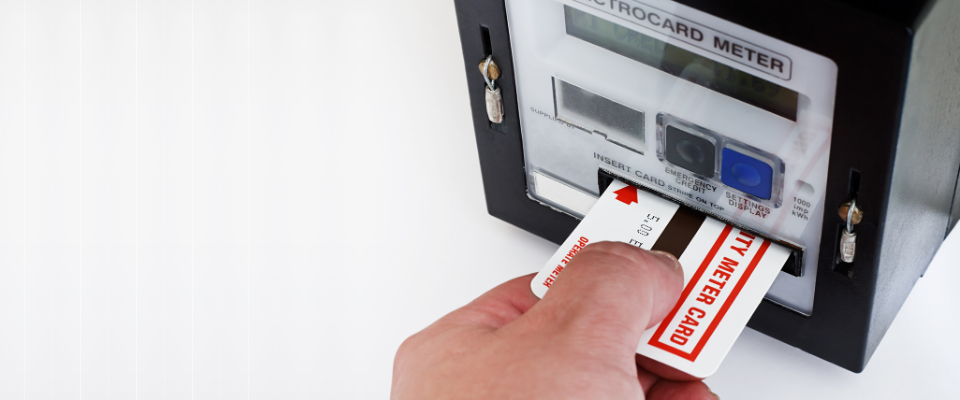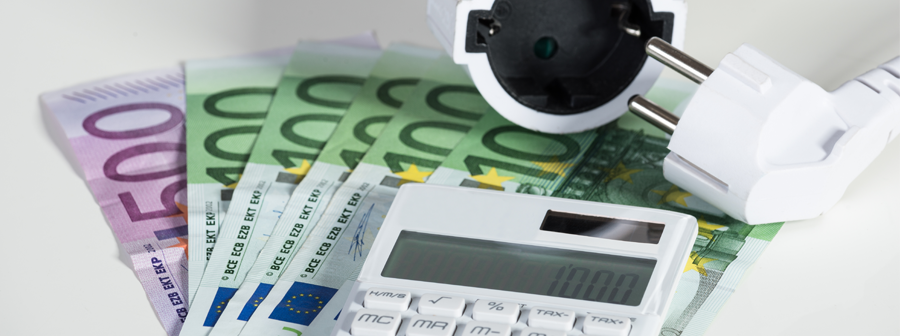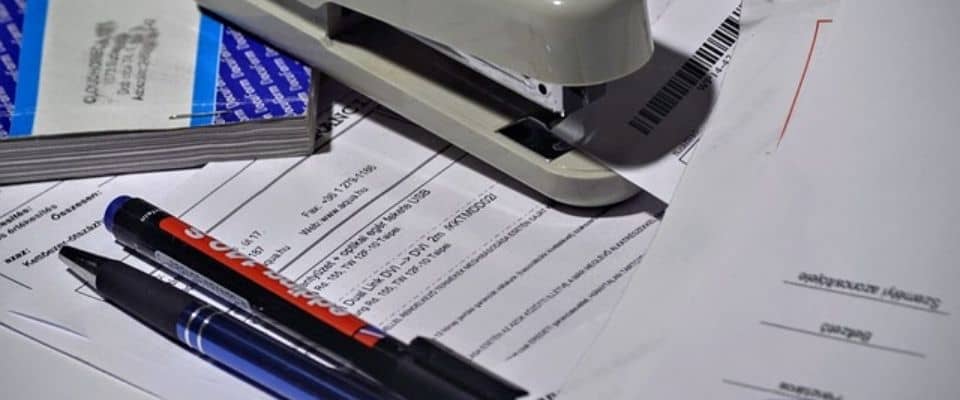
Budget meter: how do you deactivate it or have it removed with ORES, RESA and Fluvius?
If your home has a budget meter for gas or electricity but you want to remove it, you will have to complete a formal process with your supplier. This is what you need to do.
What if you’re moving into a new home that has a budget meter, but you don’t want to keep it? Or perhaps you no longer need it? Whatever your reasons, it is possible for you to deactivate or remove a budget meter. In this article, we will explain what you need to do.
Do you own a business with an energy consumption of more than 100,000 kWh?
Is your business paying too much for energy? Whether you run a small business or a large company, energy costs can eat into your profits. By comparing energy providers, you could lower your rates and save thousands each year.
Reminder: what is a budget meter?
For those who are not familiar with the concept of a budget meter, you need to remember that it allows you to consume energy on a prepaid basis. So, to receive a gas or electricity supply, you have to load some money onto a smart card at a charging point. Then, all you have to do is insert the card into your budget meter in order to consume energy up to the amount you have loaded onto the card. This forces you to control your budget, as, if you use up the credit on your card and the emergency credit, your meter will be locked and you will have a power cut.
In Wallonia and Flanders, this type of meter is sometimes a requirement for households that are unable to pay their bills. In Brussels, however, there are no budget meters.
>> Further reading: What are the different types of electricity meters?
Is it better to deactivate your budget meter or have it removed?
As a rule, it is preferable to deactivate the “budget” function rather than change the meter. It will then function in the same way as any standard meter.
There’s a cost involved in replacing a budget meter, whereas deactivating the restriction costs nothing. However, replacing a meter may still be necessary in the following situations:
- The meter is faulty: if you notice some anomalies (a meter that turns too fast, or too slowly, for instance), it’s time to replace it.
- You are installing photovoltaic panels: with a photovoltaic installation, it is in your interest to install a “dual-flow” smart meter. This will allow you to measure the quantity of electricity you draw from the network and the surplus you feed in.
- The meter no longer meets the standards: if, for some reason, your meter no longer meets the safety standards, your network operator (or DNO) will be obliged to replace it for you. However, this is a pretty rare occurrence.
Tip: a single-rate budget meter may be able to be converted into a dual-rate meter (and vice versa) without a replacement being necessary (see below for further details).
The steps involved in deactivating a budget meter
The procedure to deactivate a budget meter is relatively simple. Here, we describe what is involved at each step.
1. Preliminary points
Depending on your situation in terms of point of supply, there are certain things you will have to check before submitting a deactivation request.
For a new occupant in a dwelling:
If you have just moved in, you will first need to take out an energy contract with the supplier of your choice. To simplify this step, you can use an online price comparison site such as Energyprice.be. In just a few clicks, you will easily be able to find a suitable gas or electricity contract for your new home, and you can sign up there and then without wasting any time. This means you can centralize your energy-related administrative tasks on a single website.
Comparez les offres d’énergie et réduisez votre facture !
Once your energy contract has been confirmed and acknowledged, you will be able to submit the request.
>> Further reading: I’m moving house: how should I manage my gas and electricity contract?
For an individual who was previously unable to pay their bills:
If the meter was imposed on you as you were unable to pay your bills, you will first need to settle all your debts in order to rectify your situation before you can start the deactivation process.
2. Request the deactivation card
If you have met these conditions, you will then be able to submit a deactivation request to your energy supplier. You must give your supplier your meter number and your EAN code.
Note: if you are unable to pay your bills and your network operator is ORES, you will also need to send the supplier a meter reading.
Following this request, your supplier will inform your network operator (or DNO) of your wishes and ask them to set up a deactivation card for you.
3. Receive your deactivation card
Once a deactivation card has been requested, it takes between 24 and 72 hours for it to be set up. When the card is ready, you will be able to go and collect it from the premises of your DNO.
To find out the contact details of your network operator, you can use the following tool: find my network operator.
4. Deactivate your budget meter.
You are now in possession of the deactivation card. All you have to do is follow the deactivation procedure at home. This takes place in several stages and is slightly different depending on whether electricity or gas is involved.
Here are the details (in French).
If you need further explanations in English, do not hesitate to contact your DNO. In case you are unable to reach them, our energy experts can help too. Feel free to ask us your questions by using our toll-free number 0800 37 456.
5. Receive the final bill
Your meter has now become a totally standard meter. You will now receive standard installment bills, instead of having to top up a prepaid card.
As a result, depending on the options chosen (email or paper billing, and payment by direct debit or bank transfer), you will receive your initial installment bill within a fortnight of the actual start of your supply.
Where a budget meter is removed
If deactivation is not sufficient and you have to replace the budget meter instead, the process is slightly different.
In this case, you do not have to contact your supplier, but you do need to contact your DNO directly. They will then bill you for the operation as if you were changing a standard meter.
The hidden benefits of a budget meter
Meters with prepaid cards are often perceived negatively as they impose a limit on their owners. In addition, having to physically go to a top-up point whenever your balance runs out is also restrictive.
However, they also have certain advantages. Sometimes, people decide to keep their top-up card, even though they can manage without them.
Better control over your budget
Prepaid energy effectively means limiting your freedom of consumption…but it also means avoiding installment and adjustment bills! As a result, just like a prepaid telephone card, you can control your budget and your energy consumption limit more effectively. If you top up your card generously, you will have peace of mind for a while.
In addition, note that your supplier’s rate per kilowatt-hour is the same, whether you have a budget meter or not.
Easy switch from single-rate to dual-rate (or vice versa) – with ORES
If you take over a supply point fitted with a single-rate budget meter, you can ask for it to be switched to a dual-rate, or vice versa, fairly easily.
This operation just needs administrative activation, and costs €32 excl. VAT. By comparison, if you had to change your meter, it would cost you a minimum of €150. So, if you want to change your price plan, this is a real opportunity. Once you have requested the change, you will usually have to wait for a week for it to be activated.
New occupant: how can you keep your budget meter?
If, when you move into your new home, you want to keep the existing budget meter, you must ask your supplier for a supply card in your name. Your supplier will then contact your DNO so that they can set one up for you. The time frames are usually short.
Once you have the card in your possession, you will be able to top it up whenever you like at one of the top-up points provided. Here is where you can find them, depending on your DNO:
For further information on the operation of budget meters, please see the following documents:
- The ORES budget meter
- The RESA budget meter (also valid for REW and AIESH)
- The Fluvius (formerly EANDIS) budget meter (in Dutch)
Conclusion
In summary, the decision on whether to deactivate a budget meter depends on your preferences.
If you don’t mind going to top up your card several times a year and you want tighter control over your budget, it might make sense for you to keep it.
However, if you prefer to be free from the worrying threat of a card with no credit, contact your supplier to have it deactivated. They will be responsible for informing your DNO to trigger the deactivation procedure.
Have you found this guide useful? Read our newsletter to make sure you don’t miss any of our other guides on managing your gas and electricity supply more effectively! Sign up today and receive helpful information on your energy consumption every month.
Which energy supplier suits you best? Find it out with a simulation!
Also read on our blog

Switching supplier, benefiting from the competition and therefore potentially paying less is possible today for all consumers. Tha…

>> Read our press release (in French) on the subject Do not expect our experts to contradict you: understanding and choosing…

Comprendre sa facture de gaz ou d’électricité n’est pas forcément une chose aisée. Le tarif que vous payez est divisé …

Since 2018, Energy market participants and anti-prevalence associations are jointly demanding that a simplified energy bill be est…

